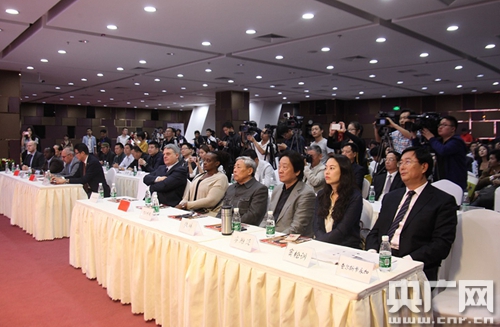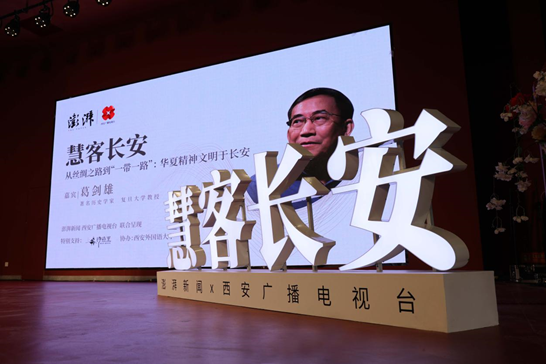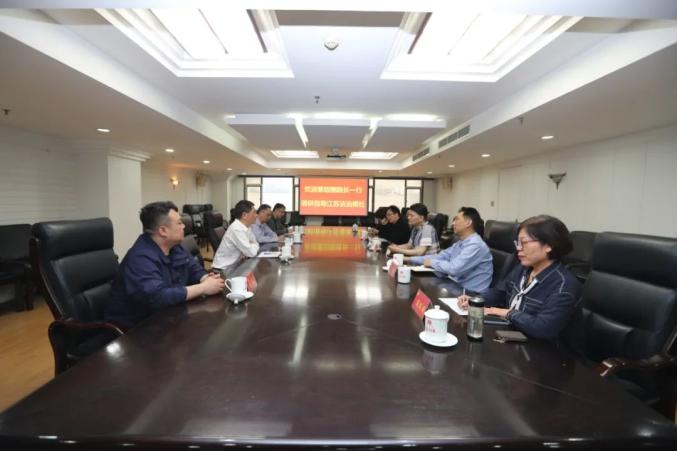[Explanation Bureau] What Changes Did Lee Jae-ming Bring To South Korea For 100 Days In Power?
[Explanation Bureau] What Changes Did Lee Jae-ming Bring To South Korea For 100 Days In Power?
In the past 100 days, Lee has experienced multiple changes in South Korea under Meiji: in terms of economy, he initially boosted stock market and investment confidence through supplementary budgets and reform measures; in politics, South Korea successfully achieved leadership change, completed the establishment of a cabinet and the formulation of a five-year development plan.
[Global Times-Global Network Report Reporter Ding Yazhi] Amid the storm of more than 300 South Korean citizens being detained by the US immigration management department, South Korean President Lee Jae-ming ushered in a critical juncture for his 100-day rule.
In the past 100 days, Lee's South Korea under Meiji has undergone multiple changes: in terms of economy, he initially boosted stock market and investment confidence through supplementary budgets and reform measures; in politics, South Korea successfully achieved leadership change, completed the establishment of the cabinet and the formulation of the five-year development plan, and passed a number of major bills; in terms of diplomacy, Lee Jae-ming proposed "pragmatic diplomacy", seeking a balance between the US-South Korea trade frictions and the restoration of Sino-South Korea relations, showing South Korea's complex situation in the Sino-US game. Many experts said in an interview with Global Times that although Li Zaiming started "efficiently", it was also accompanied by controversy. There are still many uncertainties in the future policy direction, especially the impact of his foreign policy on the Northeast Asian pattern.
The economy rebound signal
When Lee Jae-ming came to power, he faced a complex and severe domestic situation: South Korean domestic politics fell into a chaotic situation for six months due to Yoon Seok-yeol, and economic growth was weak. After officially taking office as South Korea's president, Lee Jae-ming made revitalizing the economy a top priority.
According to media reports such as the Korean Herald, Yonhap News Agency, Lee Jae-ming signed the first executive order after taking office, requiring the establishment of an "emergency economic inspection working group", emphasizing that supplementary budgets must be issued as quickly as possible, alleviate the dilemma of domestic demand, and revitalize the export engine. Subsequently, Li Zaiming presided over the State Council meeting to review and pass the first supplementary budget since the founding of the new government. According to the budget implementation plan, the government will issue "people-friendly consumption coupons" ranging from up to 550,000 won (approximately RMB 2,816) to the entire population.
At the same time, Li Zaiming also revised the Commercial Law, increasing the responsibility of major shareholders to the board of directors, successfully boosting investment enthusiasm. The Korean comprehensive stock index KOSPI surged from 2700 points before Lee Jae-ming was elected to 3300 points, and the stock market showed a recovery momentum.
Zhan Debin, director of the Korean Peninsula Research Center of Shanghai University of International Business and Economics, said in an interview with the Global Times that from the short-term economic performance, the supplementary budget policy introduced by the Li Zaiming government has a positive stimulus effect on the economy. At the same time, the stock market overall rose by about 20%. "On the one hand, this is due to the high expectations of the government's policies to stimulate the economy by increasing fiscal spending. On the other hand, it also eliminates the previous uncertainty because of the alternation of regimes, which has a positive impact on the stock market," he said.
However, Zhan Debin emphasized that since he was in power for only 100 days, it is still difficult to conclude that South Korea's economy has achieved a qualitative transformation, and the long-term effect still needs to be observed.
Efficient start, controversy follow
After Lee Jae-ming took office as South Korea's president, he quickly launched action in the field of internal affairs with an "efficient breakthrough" attitude. The day after he came to power, he established the "National Government Planning Committee" and issued the "Five-Year Plan for the Governance" at the former Blue House on August 13; he completed the first round of cabinet candidate appointments within more than a month, building a core team for governance. In addition, the South Korean parliament also passed three special inspection bills, namely "Civil strife Special Procuratorate", "Kim Jianxit Procuratorate" and "State Special Procuratorate" with an overwhelming majority of 194 votes.
Zhan Debin believes that within a hundred days, the Li Zaiming government completed the establishment of the cabinet and the formulation of the five-year development plan, and the ruling party also successfully achieved leadership change, and a number of major bills were promoted in order in the Congress under the leadership of the ruling party. Overall, South Korean politics is entering a new stage of relatively stableness.
However, this "100-day answer sheet" is not uncontroversial. The undercurrents of political games and the pain of reform have gradually emerged. According to Yonhap News Agency, because Lee's reform speed was extremely rapid in the early days of Ming Dynasty's administration, how to minimize the subsequent side effects was regarded as an important issue. During the reform process, there were differences in opinions between the South Korean Presidential Office and the ruling party, and there were continuous criticism of "different tones" in public opinion. Recent reforms have also aroused opposition from the opposition parties, resulting in an intensification of the confrontation in Congress.
Regarding Li Zaiming's 100-day rule, Dong Xiangrong, a researcher at the Institute of Asia-Pacific and Global Strategy of the Chinese Academy of Social Sciences, told the Global Times reporter that Li Zaiming took over a country that had just experienced civil strife, and he began to rule without a two-month term of office and was elected. Therefore, the most urgent task is to correct the situation and make a smooth transition. From the observer's perspective, Li Zaiming was walking on thin ice and initially completed these two core tasks.
From Washington to Beijing: Lee Zaiming's Road to "Practical Diplomacy"
Before being elected South Korea's president, Lee Jae-ming said he would implement a "practical foreign policy". At the press conference on the 100th day of office, he once again emphasized that he would use "pragmatic diplomacy" to promote South Korea to stand tall on the world stage. However, many analysts believe that the actual direction of South Korea's diplomacy shows complex deviations from this original intention, and the so-called "pragmatic diplomacy" faces multiple tests.
In terms of US-South Korea relations, at the end of July, the United States reached a trade agreement with South Korea, and South Korea will provide the United States with US$350 billion for investment projects owned and controlled by the United States. On August 25, South Korean President Lee Jae-ming visited the United States and met with Trump at the White House. The two sides talked about trade cooperation and other issues. Lee Jae-ming promised that South Korea will invest at least US$150 billion in the US shipbuilding industry and key industries.
However, Lee Jae-ming's olive branch to the United States did not receive reciprocal treatment from the United States. Less than half a month after the meeting between South Korea and the United States, federal law enforcement agencies raided a joint venture between South Korea's Hyundai Motor and LG New Energy in Georgia, taking away 475 people, of which more than 300 were Korean. South Korea's Chosun Ilbo commented that the arrests were betrayal and a heavy blow to South Korea.
Zhan Debin told the Global Times reporter that the current South Korea-US relations are basically promoted according to the presets of the Lee Jae-ming government, but due to the influence of tariffs and other issues, the South Korean government has made greater concessions on the relationship with the United States. On the one hand, this is to solve the difficult problems of the United States' pressure on defense expenses, modernization of the US-South Korea alliance, and improving the defense budget. On the other hand, it also shows that the Lee Jae-ming government still prioritizes the relationship with the United States.
He believes that, however, the "detention storm" incident has made Korean society more aware of the unreliability of the United States as an ally. Although South Korea has made concessions on trade and other issues, the United States still adopts strict standards for South Korean companies and Korean citizens on issues such as investment, employment, and legal compliance. "I believe South Korea has realized that 'unconditional pro-US' is by no means a feasible way."
Regarding Sino-South Korea relations, according to public media reports, during Li Zaiming's visit to the United States, he sent a special envoy to visit China with his own letter. Lee Jae-ming also strongly condemned the frequent anti-China demonstrations in Myeongdong and other places in recent times.
All walks of life have high expectations for China-South Korea relations after Lee Jae-ming took office. Zhan Debin analyzed that although the development of China-South Korea relations has not yet reached an ideal level, overall, the rational understanding of China-South Korea relations in South Korea is gradually returning to the mainstream. Regarding the development prospects of China-South Korea relations, he believes that "positive statements are important, but more importantly, whether there are practical measures in the future."
In the long run, there is uncertainty about the impact of Lee Jae-ming's foreign policy orientation on South Korea's political ecology and the geopolitical pattern in Northeast Asia. Zhan Debin analyzed that this is mainly due to the fact that there are certain differences between Li Zaiming's statement before the election and his policies after the rule. "It is still difficult for us to judge which one will become a long-term policy." He believes that if South Korea can truly practice "pragmatic diplomacy based on national interests", not be tempted by ideology or the United States, and maintain diplomatic flexibility, it will have a positive impact on the Northeast Asia pattern; but if it moves towards opportunistic diplomacy, it may aggravate policy instability and lead to fluctuations in regional situations.

![[Explanation Bureau] What Changes Did Lee Jae-ming Bring To South Korea For 100 Days In Power?](https://lcs-sfo.k4v.com/assets/public/default_cover.jpg)



